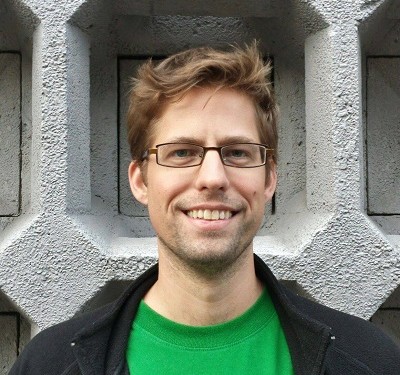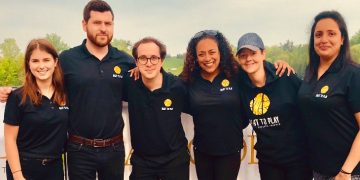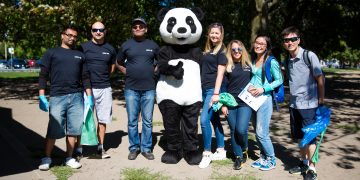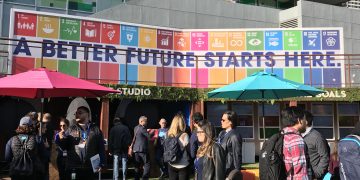Michael Kurz the Energy Projects Manager at the University Health Network
The way business is done is changing, in large part because of the growing recognition that business as usual is not sustainable. As part of this recognition many organization’s are rethinking the way in which they consume energy. Supporting this transition are people like Michael Kurz, Energy Projects Manager with University Health Network (UHN), who is already trailblazing a path towards sustainability. The benefits of Michael’s work is threefold, help the hospitals bottom line, help the health of local communities, and help the planet, it’s what he calls a win-win-win.
What does your job entail and what does a typical day look like?
University Health Network is an organization consisting of four Toronto hospitals: Toronto General, Toronto Western, Princess Margaret, and Toronto Rehab. At UHN, I work within the Energy and Environment team, and am responsible for energy management at several sites. At those buildings, I am tasked with reviewing building systems and identifying energy/water savings opportunities as well as working with building operations staff to improve building functionality and patient/staff/visitor comfort.
I work to evaluate and prioritize savings initiatives, eventually managing and implementing the resulting energy savings projects. On projects that aren’t specifically energy driven, I work with other UHN project managers to try to achieve the best energy performance within their budget constraints. To assist in supporting other project managers, our team develops guidelines and policies for energy efficiency in construction and renovations at UHN.
A typical day could involve project construction meetings, equipment performance investigations, energy calculations, reviewing engineering drawings, incentive applications, etc.
Can you briefly describe your career path and how you got your current job?
I’ve always had a knack for mathematics and technical problem solving, so engineering turned out to be a good fit. Like many millennials, I’ve had a chance to work in several different industries and I’ve gained various skills and knowledge at each of them.
I spent my co-op year at university working in the auto sector and learned a fair amount about product testing and factory production, however I ultimately realized that automotive wasn’t my passion. Graduating university, I had an opportunity to go in the opposite direction and work in a small solar startup. I became very interested in renewable energy and sustainability and I decided to focus my career in this direction going forward. Subsequently, I worked in engineering consulting, with a focus on energy efficiency auditing and renewable energy feasibility/design. This work allowed me to get enough experience to attain my professional engineering license and gave me a strong background in the type of work that I’m now doing at UHN.
What’s the coolest part about your job and what’s the biggest challenge?
UHN is filled with experts in countless fields and it is always amazing to work with people that are on the cutting edge of their profession, whether it is management, medical research, patient care, or energy efficiency. The coolest part of my job is working with new technologies (such as LED lighting, building optimization software, high efficiency HVAC equipment, etc) and it’s pretty cool knowing that every dollar I save in utilities is an extra dollar available for patient care. I also get to write for our blog, Talkin’ Trash with UHN.
The biggest challenge is the complexity of the healthcare environment. A project that may seem simple could end up being difficult for a myriad of reasons, such as infection prevention considerations, 24-hour operations, stringent hospital code requirements, etc.
What advice would you give to a job seeker looking for meaningful work?
Different things are meaningful to different people. You need to find what has meaning for you and work towards making a difference. Even if your job doesn’t feel “meaningful” you can add meaning by taking your own initiative. Start an initiative to save office paper, start a charity fundraiser, bake a cake for your colleagues, or whatever else you are passionate about. You have the power to make any job meaningful.
What can you identify as the biggest opportunity and hurdle in your sector right now?
There is a massive opportunity in the energy conservation sector with climate change and rising utility costs being the primary drivers. Energy conservation in healthcare is a win-win-win: Save money, reduce pollution, reduce sickness in society.
The primary hurdle faced in healthcare and the public sector in general is large infrastructure funding deficits. It can be difficult to find funding for energy related projects when many other competing needs exist.





1 Comment
[…] Click for the full story […]